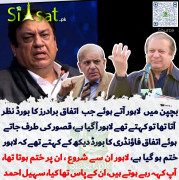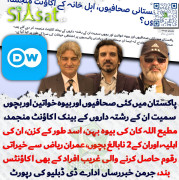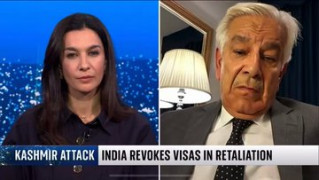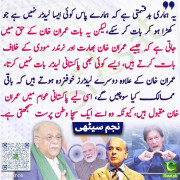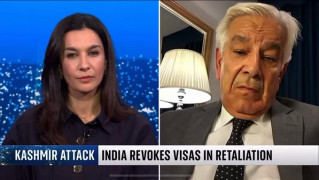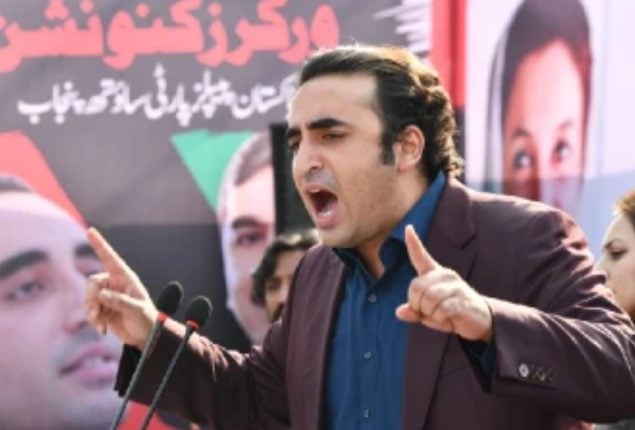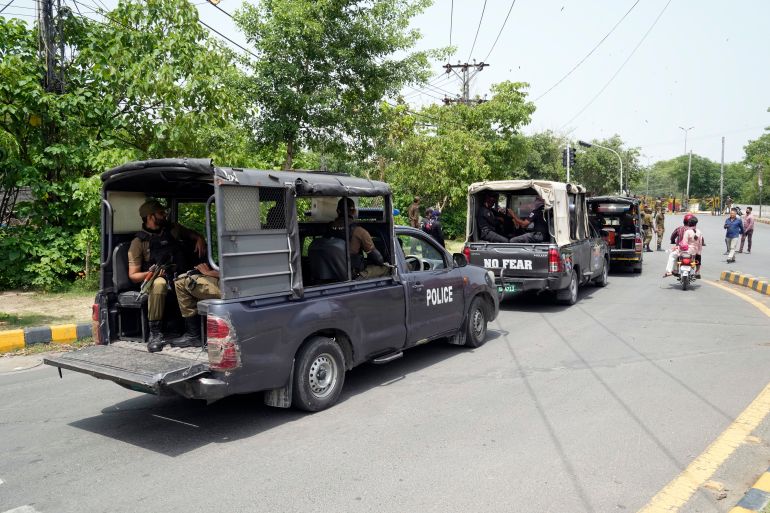Re: Tahir Ul Qadri Ne Murday Ko Kalima Padaya - The new Religion?
It is a common concept among some scholars and others that the dead in their graves have the ability of hearing a visitor's greeting, his supplication, talk, etc.. Such a concept is unfounded, for it has no proof from clear texts of the divine shari'ah. In fact, it is in open contradiction to the unchallengeable texts of the Quran and the authentic traditions of the Prophet (saws) which deny the possibility of the dead possessing this faculty.
PROOF FROM THE QUR'AN AND THE SUNNAH NEGATING IT
There are two unequivocal texts from the Qur'an which deny the possibility of the dead in their graves possessing the faculty of hearing. Allah, the Blessed and Exalted, states :
[Surah an-Naml 27:80]
إِنَّكَ لَا تُسْمِعُ الْمَوْتَىٰ وَلَا تُسْمِعُ الصُّمَّ الدُّعَاءَ إِذَا وَلَّوْا مُدْبِرِينَ
Yusuf Ali 80: Truly thou canst not cause the dead to listen, nor canst thou cause the deaf to hear the call, (especially) when they turn back in retreat.
البتہ تو مردوں کو نہیں سنا سکتا اور نہ بہروں کو اپنی پکارسنا سکتا ہے جب وہ پیٹھ پھیر کر لوٹیں
[Surah Fatir 35:22]
وَمَا يَسْتَوِي الْأَحْيَاءُ وَلَا الْأَمْوَاتُ ۚ إِنَّ اللَّهَ يُسْمِعُ مَن يَشَاءُ ۖ وَمَا أَنتَ بِمُسْمِعٍ مَّن فِي الْقُبُورِ
Yusuf Ali 22: Nor are alike those that are living and those that are dead. Allah can make any that He wills to hear; but thou canst not make those to hear who are (buried) in graves.
اور زندے اور مردے برابر نہیں ہیں بے شک الله سناتا ہے جسے چاہے اور آپ انہیں سنانے والے نہیں جو قبروں میں ہیں
In the first verse Allah addresses His messenger, Muhamad (saws), reminding him that he cannot make the disbelievers hear the invitation to Islam, for they are like the dead, who do not hear either. In the second verse Allah points to the difference between the living and the dead - they are not all alike. He further clarifies to His prophet that he cannot make the rejectors of faith hear the message (for they are dead in heart and in spirit) any more than he can make those in the graves hear what is spoken to them![
See Tafseer at-Tabari, vol.21, p.36 and al-Qurtubi's al-Jami, vol.13, p.232]
Just as the Qur'an denies the possibility of the deceased possessing the faculty of hearing, there are a number of texts in the sunnah which arrive at the same conclusion. One such hadith follows:
Ibn Mas'ud reported that the Prophet (saws) said: "Allah has angels who travel about the earth; they [do and will] convey to me the peace greeting from my ummah." [
Authentically reported by Abu Dawud]
This hadith clarifies that the Prophet (saws) does not hear the greetings of peace from Muslims when they pronounce it upon him, for if he could hear it directly, there would be no need of angels to convey it to him. Therefore, it follows that the Prophet (saws) cannot hear other forms of conversation directed to him either; and it stands even more to reason that the deceased, being lesser than the Prophet (saws), also cannot hear the salam (greeting of peace) or any other form of speech.[
See al-Ayat al-Bayyinat of al-Alusi, p.37, Published by al-Maktabah al-Islamee (1982)] Thus contrary to a popular misconception, because the Messenger (saws) cannot directly hear either one's invocation of blessings or one's salam addressed to him, such greetings may be conveyed to him from anywhere, regardless of the distance or proximity of the greeter to the Prophet's grave. The erroneous belief that the Prophet (saws) hears these greetings directly disregards the previous hadith whcih specifies that the greetings are conveyed to him by the angels, and it is based on a forged tradition whose text follows:
It has been narrated that the Prophet (saws) said: "Whoever asks blessings for me at my grave, I hear him, and whoever asks blessings upon me from afar, it is conveyed to me." [This tradition was mentioned by al-'Uqayli in his book, adh-Dhu'afa and by al-Khateeb, Ibn 'Asakir, et. al., and they all agreed that it is a forged (mawdhu') hadith. [
See al-Albani's al-Ahadith adh-Dha'eefah, vol.1, hadith no.203]

